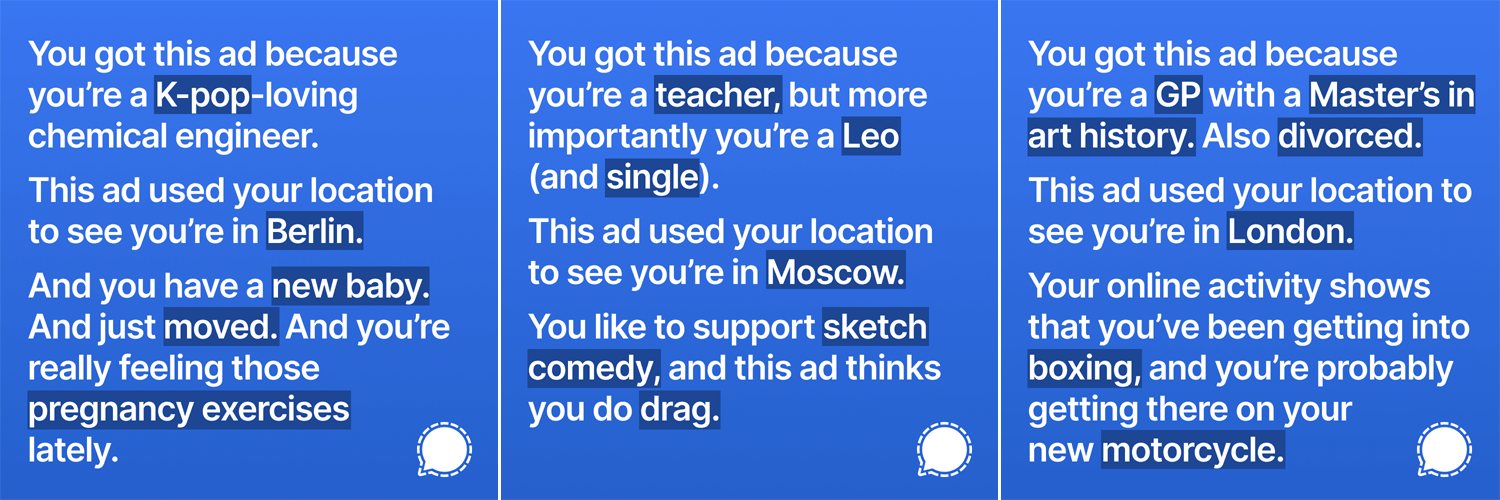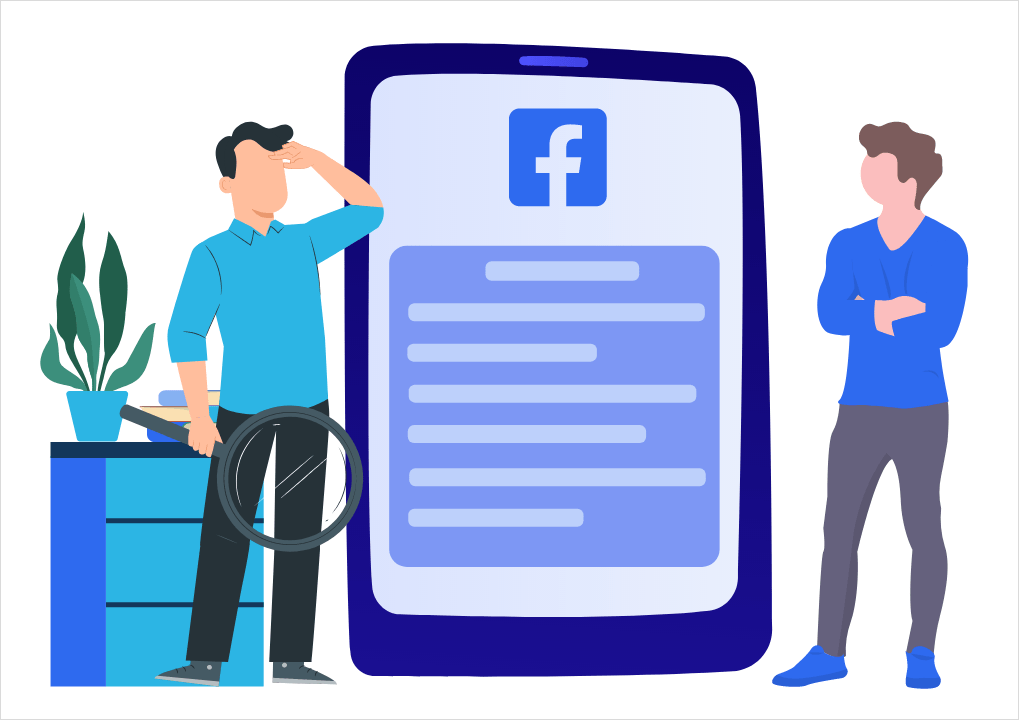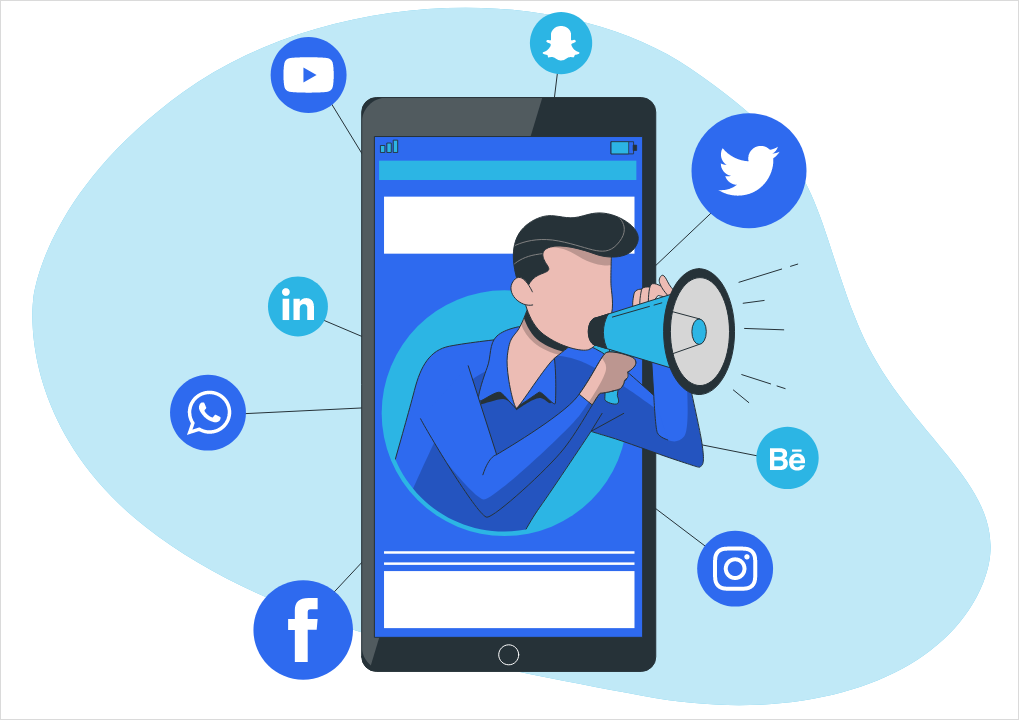The online advertising industry keeps getting more and more competitive every day, and facing that situation is that our big ad giants need to come up with better, more innovative strategies, and hide them behind the “we are doing this for user’s privacy!” curtain. And this just doesn’t surprise us anymore, but it definitely leads us to be more and more incredulous of anything they have to say.
A great example of this is Google’s new FLoCs, born right after they banned the utilization of third-party cookies for privacy reasons. You know, to avoid having competitors tracking their users’ activity because that’s something only they are secure enough to handle. Just like that, Google Ads took over a huge part of the market and launched a very poor replacement for it.
But what brings us here today are not Google Ads’ policies, but actually, the decision Facebook made when facing probably the most real and invasive campaign ever launched. Have you seen the TV series You? Well, let’s just say that these Ads made Joe Goldberg look like a complete amateur. But hey, enough with the chit-chat already, and let’s dive into what actually happened. According to Gizmodo’s article, this is how the story went.
Have you ever heard of Signal? Basically, they are a free message platform that focuses primarily on users’ privacy and security. Their whole idea is to break from the usual message platforms (such as WhatsApp) and their privacy problems, and come up with an innovative way of communicating that is not at constant risk of leaking all your private data. And they decided to launch an Ad campaign using Instagram’s tech tools and both Instagram and Facebook’s databases because they share a common one.
So their plan was to use this to prove their point on how unprivate these platforms actually are, given that whatever you do on each of them can help you get targeted in the other one. Basically, the idea was to launch Ads targeted pretty much by individuals (sounds similar to a certain t-shirt company that did the same thing and ended up disclosing the internet’s fury?) that made people see how much brands could know about them just by paying to use Facebook Ads’ technology. The Ads literally used the information for what they were targeted for, in order to get users to really see what was going on. And this happened:

And it appears that Facebook figured this was just too much honesty, and couldn’t take it. And the account was shut down before any user could actually get to see these incredibly transparent Ads. So just to get things straight, Facebook is up for having Ads about gambling and drinking targeted at teenagers, but not for having their users know how much they actually knew (and shared) about them? Huh, look at that.
So what happened when Signal’s team shared their story? Facebook denied the whole thing. Their spokesperson said that this was all just a PR campaign pulled by Signal who was never intending to launch Ads and was just doing everything for publicity. They also said that these Ads wouldn’t have been shut down, except for the ones that stated that users were being targeted for sexual orientation or medical conditions which is something that Facebook’s policies ban. So their response pretty much was all about the fact that Signal never really tried to launch the Ad Campaign. But hey, it wouldn’t be the first time Facebook intends to deny something to (at least try to) save their reputations, right? I think we could even have a whole category of articles around Facebook saying they didn’t do what they are being accused of.
After those statements were spread, Signal went back to Twitter to confirm that they indeed had tried to run the campaign, which Facebook rejected and continued to disable their account. They also attached screenshots and threw some shade.
You know that I for sure am one for the soap-opera melodrama, and you also know how much I enjoy watching all of these tech giants tearing each other apart while their users calmly wait to see what they can and can’t do (because policies keep getting updated to guarantee their securities) every single day. But even to me, this sounds like a little too much. I’m not going to dig into figuring out who’s lying and who’s telling the truth, mainly because I believe probably both are telling half-truths, but also because this whole situation seems just too much like high-school drama, and it gets boring. All this he-said-she-said is something that should be saved for teenagers, and Facebook should just cut it and start facing the consequences of their acts. Even if they are not lying and Signal really didn’t try to run the campaign, there’s a reason why no one would be surprised to find out that they rejected Ads because they were just too honest. And that reason is that they definitely are not too honest.
So the bottom line here is quite simple: Whatever you do on Instagram, Facebook knows it and the other way round. And you can get targeted for what these platforms think of you and your activity. So next time you are browsing through embarrassing videos of people popping pimples, think about how you would look if you bumped into an Ad that said “this Ad is targeted to you because you are an addict to people popping their pimples”. And it’s great if you don’t care, but hey, not everyone has your confidence in their own searches.
To conclude, I believe today’s world, at least the one that takes place on the Internet, is pretty much anything but private, and we can’t let ourselves be fooled by what the big Ad leaders say. They will continue to come up with strategies to get bigger and bigger, and we will continue to try and make the most of them, and just nod and smile anytime they start talking about protecting our privacy.






